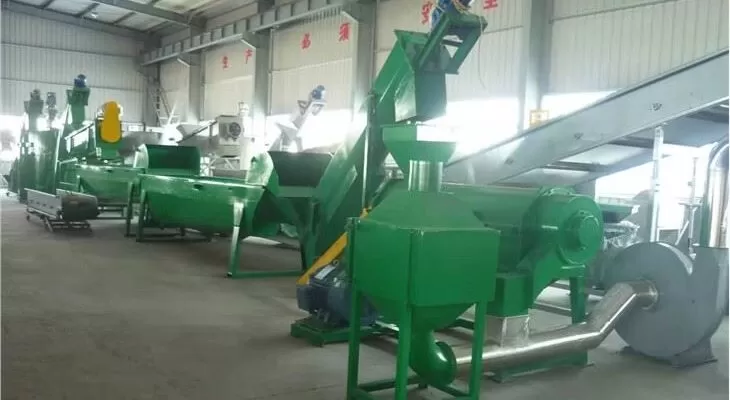Environmental issues and plastic waste are pressing concerns worldwide, and South America is no exception. But what specific challenges do South American countries face when it comes to environmental protection and plastic recycling? Let’s delve into the complexities and see how these nations are tackling these significant problems.

In short, South American countries face unique environmental and plastic recycling challenges due to a mix of economic, social, and infrastructural factors. These challenges include limited recycling infrastructure, economic constraints, and varying levels of public awareness. However, efforts are being made to address these issues through innovative solutions and international cooperation.
Curious about how these challenges are being addressed? Let’s explore further.
What Are the Main Environmental Challenges in South America?
South America is a region rich in biodiversity and natural resources. However, it faces numerous environmental challenges. Deforestation, pollution, and climate change are significant concerns that impact the environment and local communities.
1. Deforestation
Deforestation is one of the most pressing environmental issues in South America, particularly in the Amazon rainforest. The expansion of agriculture, illegal logging, and infrastructure development contribute to the loss of this vital ecosystem. The Amazon is often referred to as the “lungs of the Earth,” and its destruction has global implications.
2. Pollution
Pollution in South America takes many forms, from air and water pollution to plastic waste. Industrial activities, mining, and inadequate waste management systems exacerbate these issues. Major cities like São Paulo and Buenos Aires struggle with high levels of air pollution, while rivers and coastlines are often littered with plastic debris.
How Is Plastic Waste Managed in South America?
Plastic waste management is a critical issue in South America. While some countries have made strides in recycling, others lag behind due to various obstacles.
1. Limited Recycling Infrastructure
Many South American countries lack the necessary infrastructure for effective plastic recycling. This includes insufficient recycling plants, inadequate waste collection systems, and a lack of public recycling bins. As a result, a significant portion of plastic waste ends up in landfills or the environment.
2. Economic Constraints
Economic challenges also play a role in the region’s plastic waste management issues. Investing in recycling infrastructure and programs requires substantial financial resources, which some countries may struggle to allocate. Additionally, informal waste pickers, who play a crucial role in recycling, often lack proper support and recognition.
What Are the Social and Cultural Challenges?
Addressing environmental and plastic recycling challenges in South America also involves understanding the social and cultural context.
1. Public Awareness and Education
Public awareness about the importance of recycling and environmental protection varies across the region. In some areas, there is a strong environmental consciousness, while in others, there is a lack of education and awareness. Promoting environmental education and awareness campaigns is essential for fostering a culture of recycling.
2. Informal Waste Sector
The informal waste sector, comprising waste pickers or “cartoneros,” plays a significant role in recycling in many South American cities. These individuals collect and sort recyclables from the streets and landfills. While they provide an essential service, they often work under harsh conditions without formal recognition or support.
What Are Some Innovative Solutions?
Despite these challenges, there are several innovative solutions and initiatives aimed at improving plastic recycling and environmental protection in South America.
1. Public-Private Partnerships
Public-private partnerships are proving to be effective in addressing recycling challenges. By collaborating, governments and private companies can pool resources and expertise to develop and implement recycling programs. These partnerships can also drive innovation and efficiency in waste management【source】.
2. Community-Based Initiatives
Community-based initiatives are also making a difference. Local communities, NGOs, and grassroots organizations are working together to promote recycling and environmental protection. These initiatives often focus on education, awareness, and providing resources for effective recycling practices.
What Role Does Technology Play?
Technology plays a crucial role in modernizing waste management and recycling systems in South America.
1. Advanced Recycling Technologies
The adoption of advanced recycling technologies can significantly enhance the efficiency and effectiveness of recycling processes. Technologies such as chemical recycling and automated sorting systems can help overcome some of the limitations of traditional recycling methods.
2. Digital Platforms
Digital platforms and apps are being used to connect waste generators with recyclers, track waste collection, and provide information on recycling practices. These platforms can help streamline the recycling process and improve overall waste management efficiency.
What Is the Future of Recycling in South America?
The future of recycling in South America holds promise, with various efforts underway to address existing challenges and promote sustainable practices.
1. Policy and Legislation
Governments in South America are increasingly recognizing the importance of robust environmental policies and legislation. Implementing and enforcing policies that promote recycling, reduce plastic use, and protect natural resources is crucial for long-term sustainability.
2. International Cooperation
International cooperation and support can also play a significant role. By sharing knowledge, resources, and technologies, countries can collectively tackle environmental challenges and improve plastic recycling rates. Collaborative efforts can lead to more comprehensive and effective solutions.
Conclusion
In conclusion, South American countries face unique environmental and plastic recycling challenges. However, through innovative solutions, community involvement, and international cooperation, there is potential for significant progress. By addressing these challenges head-on, we can work towards a cleaner, more sustainable future for South America and the world.
That’s it. Let’s take action and make a difference in the world of recycling!
